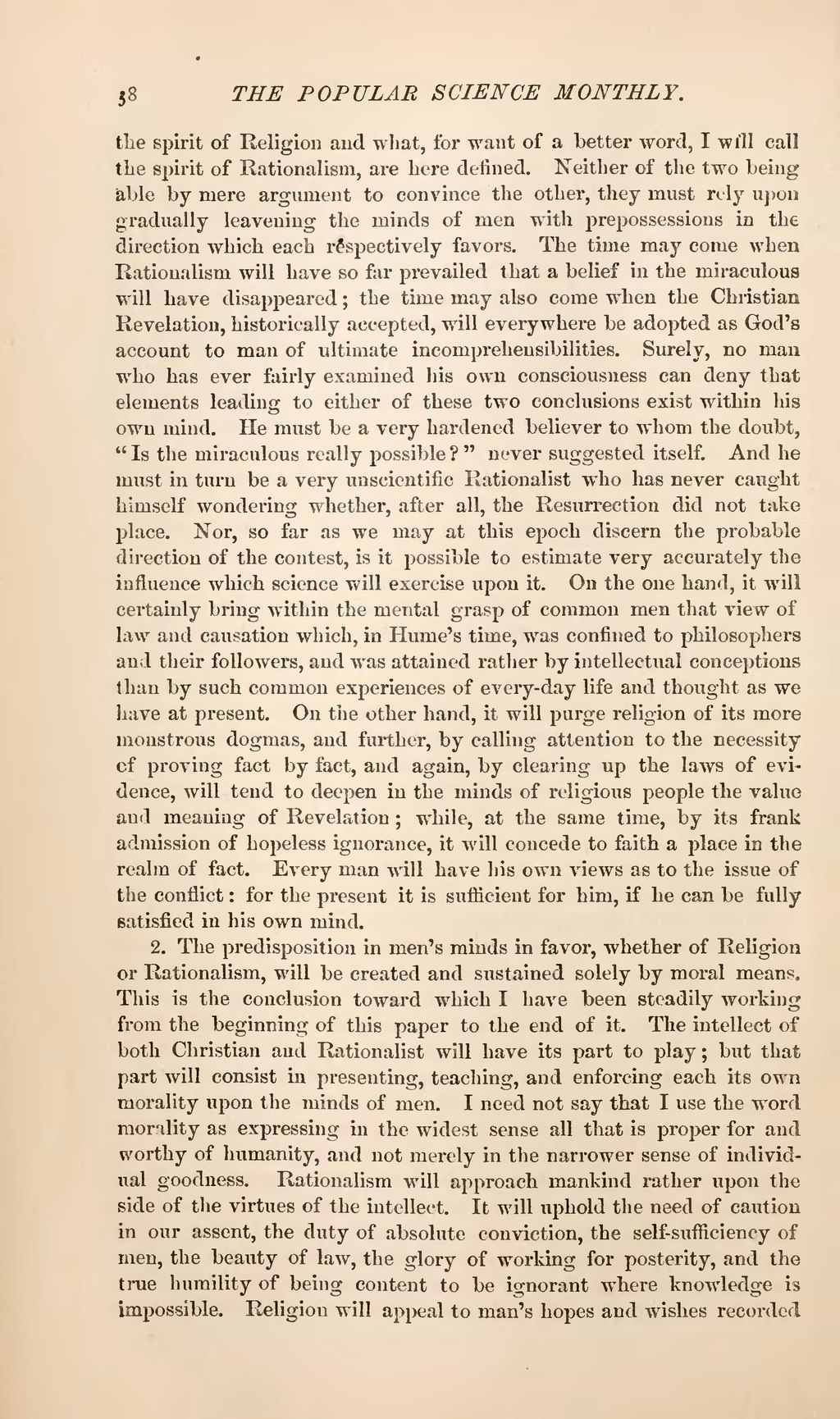the spirit of Religion and what, for want of a better word, I will call the spirit of Rationalism, are here defined. Neither of the two being able by mere argument to convince the other', they must rely upon gradually leavening the minds of men with prepossessions in the direction which each respectively favors. The time may come when Rationalism will have so far prevailed that a belief in the miraculous will have disappeared; the time may also come when the Christian Revelation, historically accepted, will everywhere be adopted as God's account to man of ultimate incomprehensibilities. Surely, no man who has ever fairly examined his own consciousness can deny that elements leading to either of these two conclusions exist within his own mind. He must be a very hardened believer to whom the doubt, "Is the miraculous really possible?" never suggested itself. And he must in turn be a very unscientific Rationalist who has never caught himself wondering whether, after all, the Resurrection did not take place. Nor, so far as we may at this epoch discern the probable direction of the contest, is it possible to estimate very accurately the influence which science will exercise upon it. On the one hand, it will certainly bring within the mental grasp of common men that view of law and causation which, in Hume's time, was confined to philosophers and their followers, and was attained rather by intellectual conceptions than by such common experiences of every day life and thought as we have at present. On the other hand, it will purge religion of its more monstrous dogmas, and further, by calling attention to the necessity of proving fact by fact, and again, by clearing up the laws of evidence, will tend to deepen in the minds of religious people the value and meaning of Revelation; while, at the same time, by its frank admission of hopeless ignorance, it will concede to faith a place in the realm of fact. Every man will have his own views as to the issue of the conflict: for the present it is sufficient for him, if he can be fully satisfied in his own mind.
2. The predisposition in men's minds in favor, whether of Religion or Rationalism, will be created and sustained solely by moral means. This is the conclusion toward which I have been steadily working from the beginning of this paper to the end of it. The intellect of both Christian and Rationalist will have its part to play; but that part will consist in presenting, teaching, and enforcing each its own morality upon the minds of men. I need not say that I use the word morality as expressing in the widest sense all that is proper for and worthy of humanity, and not merely in the narrower sense of individual goodness. Rationalism will approach mankind rather upon the side of the virtues of the intellect. It will uphold the need of caution in our assent, the duty of absolute conviction, the self sufficiency of men, the beauty of law, the glory of working for posterity, and the true humility of being content to be ignorant where knowledge is impossible. Religion will appeal to man's hopes and wishes recorded

